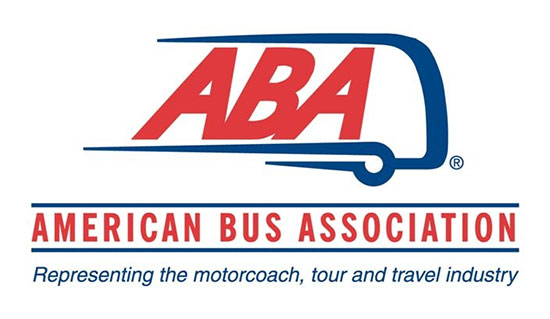- Details
- Category: Industry News

The Global Business Travel Association (GBTA) has released the results of its latest COVID-19 Member Poll. The survey—the 14th such poll by GBTA since the onset of the pandemic to measure the impact on business travel—finds that a majority of respondents are optimistic that the travel industry will begin to rebound in mid to late 2021 and that the availability of the COVID-19 vaccine is top of mind for many business travel professionals.
 GBTA Interim Executive Director Dave Hilfman
GBTA Interim Executive Director Dave Hilfman
“What we’re seeing in this latest poll is a number of reasons for the business travel industry to be optimistic about 2021, especially toward the middle of the year,” said Dave Hilfman, the interim executive director of GBTA. “As the vaccine rollout gains momentum and if we see a corresponding drop in positive COVID-19 test results, this survey suggests something of a return to personal connections and in-person meetings and events in the business space.”
Key findings include:- Three out of four respondents expect employees to attend in-person meetings/events in Q2 or Q3 2021, with 89 percent of respondents set to attend an in-person meeting or event with attendees outside their company by Q3 2021.
- 87 percent of respondents expect to attend internal company meetings or events in person by Q3 2021. As attendance at in-person events increase through the year, attendance at hybrid meetings is expected to decline as 2021 unfolds.
Three in five (59 percent) of GBTA members say vaccine availability is a “significant” factor in their company’s decision to resume business travel. One in four (23%) say it is a ‘moderate’ factor, while one in ten (14 percent) are unsure of the impact the vaccine will have on the resumption of business travel.
Despite the vaccine being rolled out in the US and Europe over the past few weeks, many GBTA member companies remain largely unsure about their company’s position concerning vaccine availability and the resumption of business travel, according to the poll. Half (54 percent) report they are unsure about their company’s position, whereas one in five (20 percent) say their employees will be permitted to travel for work when the employee and a significant portion of the population have been vaccinated. An additional one in five (16 percent) employees will be permitted to travel for work once a significant portion of the population has been vaccinated. One in ten (10 percent) say their employees will be permitted to travel for work when they have been vaccinated.
Two in five (39 percent) GBTA members/stakeholders report their company has begun to plan hosting or attending meetings and/or events for 2021, while half (50 percent) have yet to start, and one in ten (11 percent) are unsure of their plans.
-
55 percent of GBTA members and stakeholders in Europe say their company has begun planning 2021 meetings and/or events, while 36 percent of North America respondents said the same.
Of those who report their company is planning to host/attend 2021 meetings and/or events, more than half are planning to host/attend small to mid-sized meetings or events with up to 500 attendees.
Buyers and procurement professionals expect 2021 business travel spend to be lower than it was in 2019. Nine out of ten (90 percent) say 2021 business travel spend will be lower compared to 2019 and only 5 percent expect 2021 travel spend to be the same as 2019. Broken down by region, 98 percent of buyers and procurement professionals based in Europe and 90 percent in North America expect 2021 business travel spend to be lower than it was in 2019.
 GBTA COVID-19 Member Poll v.14
GBTA COVID-19 Member Poll v.14
When asked where travel savings would be made, comparing travel spend in 2019 versus 2021, travel buyers and procurement professionals estimated that there would be a decline in the percentage spent on internal meetings, conferences and trade shows (regardless the amount of funds allocated for 2021 business travel), but an increase in percentage spent on sales meetings and service trips with current and prospective customers.
View the entire poll results here and key highlights here. GBTA has been polling members since the beginning of the pandemic; the results of all polls can be accessed here.
Methodology
GBTA conducted a poll of its members across the globe from December 7-13, 2020. A total of 760 responses were received.
Visit gbta.org for more information.
[12.30.20]
- Details
- Category: Industry News

EmpireCLS announced that they are the first luxury ground transportation provider to provide rapid COVID testing for their chauffeurs. The CareStart COVID-19 Antigen test is FDA approved, and described as a lateral flow immunochromatographic assay intended for the qualitative detection of the nucleocapsid protein antigen from SARS-CoV-2.
In a statement, the company calls the tests—which offers results in 10 minutes—“another step and breakthrough in mitigating risk, as we continue to protect the health and safety of all those riding with us.”
 EmpireCLS COVID-19 Antigen test kit
EmpireCLS COVID-19 Antigen test kit
Testing is currently available for the industry upon request for $50 in the following cities:
- Los Angeles
- New York City
- Boston
- Washington D.C
- Miami
- Atlanta
- San Francisco
- Dallas
- Houston
- Chicago
- Tampa
- Orlando
- Philadelphia
- More key cities being added weekly
This rapid testing continues EmpireCLS’s efforts to offer the “safest ride on the road.” Since the pandemic, the company’s chauffeurs have been supplied with thermometers to monitor their temperature throughout the day. While this will not detect asymptomatic infections, it has created awareness when a chauffeur has a fever and may not know.
To learn more about chauffeur testing and all of our Health & Safety guidelines click HERE.
Visit empireCLS.com for more information.
[12.28.20]
- Details
- Category: Industry News
The American Bus Association (ABA)—the industry leader advancing North American motorcoach travel and tourism—released motorcoach industry closure data gathered from the Department of Transportation's Federal Motor Carrier Safety Administration (FMCSA).

According to FMCSA, in a typical year such as 2018 or 2019, the motorcoach industry would expect to see an average of 100-120 passenger companies lose operating authority.
The data collected by FMCSA show a surge in losses of authority for motorcoach operators in 2020, which means these companies are no longer providing transportation, in some cases forever. There have been nearly 500 companies who have lost their operating authority, whether voluntarily or involuntarily, so far this year (482 through Nov. 30, 2020), a 400 percent increase over 2019. Nearly 72 percent of these losses of authority occurred between April and August 2020, during the height of the pandemic. According to FMCSA records, only 26 (5 percent) of the closures in 2020 appear planned in advance, with an “Out of Business” form filed with FMCSA. It is unknown how many other companies remain open in “name” only or on the brink of formal closure.
 ABA President Peter Pantuso
ABA President Peter Pantuso
"2020 has been an extraordinary year in terms of companies no longer operating buses," said ABA president and CEO Peter Pantuso. "Between April and August 2020, we saw the equivalent of nearly three years of closures in just four months. I do not know of any other transportation industry impacted as severely by this pandemic as the motorcoach industry. Our industry is unique, and we need a bridge to a time of recovery, which is at least 12 to 24 months away."
This follows the recent testimony on Capitol Hill by Pantuso to help capture some much-needed aid for the industry. On Tuesday, December 15, Pantuso testified to the Senate Committee on Commerce, Science & Transportation Subcommittee on Manufacturing Trade and Consumer Protection on the impact of COVID-19 on the live event entertainment industry, including transportation suppliers.

In prepared remarks, Pantuso outlined the devastation COVID-19 has brought on the motorcoach industry, which has also affected many other industries including the live entertainment industry. A portion of ABA's motorcoach membership, Entertainer Motorcoaches, is focused on transporting artists, entertainers, and celebrities and their crews and equipment on ground-based tours and to various entertainment venues. As well, politicians and the media also rely on these motorcoaches for scheduled events. Motorcoaches play a critical role in advancing the event as well as post-event activities, facilitating not only transportation of artists and crews, politicians, and the like, but also audiences to live events, including sports events.
"All motorcoach companies are a vital component of the national transportation network, providing intercity scheduled bus service, commuter and shuttle operations, school bus transportation, charter and entertainment services," said Pantuso. "Prior to March 2020, the motorcoach, tour, and travel industry was fully engaged in driving the economy, and the charter sector was preparing for another strong tourist and entertainment season. However, the outbreak and spread of COVID-19, has brought the industry to a standstill. To date, our industry has been entirely overlooked, in terms of its critical role in the nation’s transportation network and economic engine. Our industry is unique, and we need a bridge to a time of recovery, which is at least 12- to 24 months away."
The ripples can be felt through the economy as motorcoach companies directly employ close to 100,000 workers and generate $15 billion in economic activity, in addition to supporting nearly 2 million other jobs across America and creating $237 billion in direct and indirect economic activity nationwide.
Today, the industry is operating at less than 10 percent of 2019 levels, with no clear path to recovery for another 12 months or more. Lacking any direct financial support, as other passenger transportation modes received in previous stimulus packages, the industry and specifically the entertainer motorcoach sector, is now facing a dire situation meaning employees would be out of work permanently.
It is important to note that the motorcoach industry is a capital-intensive industry, where the largest cost are the costs of equipment and insurance with payments at the mercy of deferments by lenders and vendors. With the reduced demand for transportation services because of the pandemic these numbers could significantly increase in the future.
Visit buses.org for more information.
[12.30.20]

